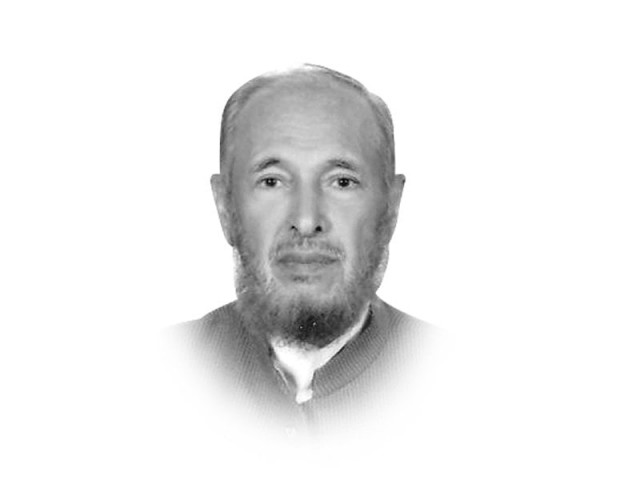Roadmap for Afghan peace
Every endeavour that is made to end the conflict must be appreciated and backed

The writer has served as ambassador to Afghanistan and is a former interior secretary
Not only was any definitive line of action lacking, wholly irrelevant issues were also raised to cause further complications in pursuit of the objective of reconciliation. For instance, it was asserted that the Quartet would call upon all Taliban groups to join the peace parleys; and those who choose not to would face the wrath of the two governments. Now claiming that there are different groups within the Taliban movement would certainly cause deep resentment in the dominant group led by Akhtar Mansoor because that group alone enjoys the support of 95 per cent of the field cadres of the Taliban. This would also be seen as an attempt to cause disunity in the ranks of the Taliban.
Every endeavour that is made to end the conflict must be appreciated and backed. But then for the conflict to end, the reason behind it must be clearly identified. In this case, one of the main causes of the 14-year-long war in Afghanistan — the longest the US has fought — is the military presence of Nato and the US in the country. Clearly, the exit of all foreign forces would be premised upon the creation of an environment that guarantees peace and stability. That in turn would depend on the various Afghan factions, including the Taliban, coming to an agreed consensus on peacemaking, governance systems and mainstreaming of all those who have fought against the government or foreign forces all these long years.
For such a consensus to emerge, it is critical that a level of trust is created that can in turn enable a long-term engagement to take place, aimed at finding a sustainable solution to the crisis. In the meeting held under the auspices of Pugwash in Doha on January 23-24, the Taliban outlined conditions that they felt should be pre-requisites for starting a formal dialogue. These include the scrapping of the black list that bans Taliban leaders from travelling as well as the release of all Taliban members now in custody of the US or the Kabul government. Significantly, the discussions in Islamabad of the Quadrilateral group seem to have overlooked these conditions.
It can, therefore, be assumed that once more there would be an effort to ‘persuade’ some Taliban representatives to join the ‘talks’ with the Kabul government. Even if that materialises, such meetings would not deliver anything concrete in terms of peacemaking.
The plain fact is that the government in Kabul is in desperate need of some sort of a formal contact with the Taliban in order to block or blunt the coming spring offensive. At the moment, the government’s position is shaky and the people have almost given up hope of any meaningful breakthrough that could lead to peace. The emergence of the Islamic State and the Turkestan Islamic Movement has further dampened expectations of the country returning to a state of normalcy anytime soon. If the fighting escalates in the coming months and the desertion rate from the Afghan National Army jumps substantially, the situation could become even more chaotic. The authorities in Kabul do not seem to have any workable plan that can be presented to the Taliban leaders. There appears to be a huge lack of concern or understanding for a purpose-oriented, meaningful engagement with the Taliban that takes into account the fundamental factors leading to insurgency and conflict. At the same time, the Taliban do not seem to have any idea either, of how to prioritise the key steps that should be taken for a formal dialogue to begin.
For any real progress towards a sustainable solution, there has to be some visible, concrete action on some of the demands of the Taliban, like the scrapping of the black lists and releasing of some prisoners. But as important as that is for building trust between the Taliban and the Afghan government, Kabul must be ready to take a number of additional steps that would be critical for a comprehensive peace deal. These include amending the Afghan Constitution, formation of an interim government that has some representation of the Taliban as well, establishing a consensus on future governance systems, initiating long-term rehabilitation and reconstruction in the country and providing tangible guarantees for non-interference by neighbouring and regional countries.
Afghanistan’s return to peace and normalcy is a tremendous challenge, not only for the many Afghan factions and its government, but also for regional leaders. For any strategy to work, it is imperative that the objective realities are taken into consideration. If no implementable peace plan is presented soon by the Afghan government and its international partners, the country may be in danger of losing its way and sliding down a perilous trajectory towards chaos and anarchy. Hopefully, wiser counsels will prevail.
Published in The Express Tribune, February 11th, 2016.
Like Opinion & Editorial on Facebook, follow @ETOpEd on Twitter to receive all updates on all our daily pieces.















COMMENTS
Comments are moderated and generally will be posted if they are on-topic and not abusive.
For more information, please see our Comments FAQ